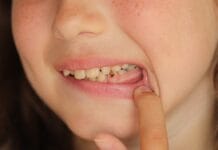Dental hygiene has been known as a “mommy job” in my community. We don’t have to take call, we don’t have to work weekends, and most of us work part-time. I have known few hygienists who do work “full-time,” and most of them have expressed feeling what we like to call clinical “burnout.” They end up feeling the need to work for 5 o’clock, and they often lose sight of why they became a hygienist in the first place. There are other ways to work full-time without working full-time, and avoid that “burnout.”
Monday through Friday is a very appealing schedule, the most appealing schedule in our working society. Eight to five, four or five days a week in the dental world is considered a full-time position. These positions sometimes come with benefits like paid vacation and sick time, paid continuing education, and professional association dues. Some offices utilize bonus programs; either monthly, quarterly, or yearly, with monetary bonuses or even incentive trips, like a trip to the beach with your co-workers.
When working full-time clinically in a busy practice, skills and ethical principles tend to slip. Imagine you’re working 8-10-hour days with back to back patients, sometimes not even getting a full lunch hour. Most patients are scheduled for a designated, allowable time, and often this is not enough time to complete a full comprehensive appointment that is needed. Getting behind by a few minutes is very typical on most day to day hygiene schedules. The last thing the hygienist wants to do when he/she is already behind is plug in added care practices; such as education, complete periodontal probing, full mouth series, or taking impressions for fluoride trays or whitening trays. Imagine if this is your every day. Time is important. We give so much of our lives to our careers, that family and friends are often put aside.
I have not worked full-time clinically very much in my almost twelve-year career as a hygienist, and honestly, it is because I have seen these “burnt out” hygienists on multiple occasions, in multiple offices. Everyone in our career field knows exactly whom I am referring to; the hygienists that have been working their tail ends off for years, day in and day out. They hustle through their day and have patients that are exclusively their own. New products, new instruments, and new techniques are not interesting to them to try or implement into their “tried and true” routine of bitewings, scale, polish, floss, and socializing. Patients just love them; these hygienists have been there for them for years, and know about their families, careers, and lives. It isn’t a bad thing at all; it’s just enabling advancement. These patients have no idea that the care they have been receiving has been mediocre.
For example, I replaced a hygienist who retired in an office that was very set in its ways. The dentist had not improved or updated, aside from digital radiography. The hygienists were expected to arrive 30-40 minutes prior to patient care and go through charts, paper charts. I hadn’t seen paper charts in years. The office had a strict regimen of how an appointment was to go, and only 50 minutes to do so. I listened to their only full-time hygienist complain to me about how burnt out she was, and how she would just love to get that extra ten minutes to get through appointments in order to feel like she is doing her job well.
Within my first day, patients were telling me that they’ve never had their “teeth cleaned in this manner before and are they going to be charged extra for my care?” I was honestly just completing routine care that I have done for years prior to working in this office. Many were appreciative of my work, but there were those that were skeptical and didn’t understand what I was doing because they were so used to “their” hygienist, and just weren’t sure of this change.
I only lasted a year at this office. There were too many things there that just didn’t add up to me. I pride myself on my skills and my patient care being optimum. Going through the motions to a fifty-minute schedule is not my style. Only “scraping and polishing” is not my style of hygiene care either. I refuse to cause burn out to myself, by working too much and by not being given enough time to provide the care that patients deserve and need.
To avoid this “burn out” that full-time or any hygienist may feel, I want to offer you this. Find a way to work full-time, without working full-time. Most of us are hygienists because we love the job. We are compassionate, caring, attentive, detail-oriented and organized people. I love my clinical job, but I have been fortunate to find other ways to love my career.
We are taught in school that there are other avenues in dental hygiene outside of clinical work. I have had the pleasure of becoming an educator and working as an adjunct instructor. Not many people realize, but you don’t have to have higher education (such as a Master’s degree) to become a clinical educator in dental hygiene; some requirements are met with experience.
I had a lot of interest in teaching when I went through dental hygiene school. I idolized my instructors and hoped to be as influential as them someday. I was elated to receive a phone call asking if I was interested in teaching, with an offer to apply for an open adjunct position in my area hygiene program. I was able to work as a clinical instructor while gaining my higher education so that I could also become a didactic instructor.
Aside from teaching hygiene, there are corporate positions. I met a fellow hygienist who works for a major dental insurance company in our state. She observes claims and is often the person looking at radiographs for pre-authorizations, or reading narratives from hygienists in regard to proposed periodontal therapy. There are sales positions, I have met several hygienists who branched out from clinical work to selling products that we utilize every day. They have a great knowledge base for these products because they know what they like and what other hygienists may or may not like. Other positions in sales may pertain to dental labs; I was introduced to a position where a dental lab was looking for a dental hygienist with experience in sales to become the liaison between the lab and the many dental offices it served.
I recently became involved with an organization which trains dental hygienists to teach courses to Direct Care Professionals (DCPs) on oral care. The DCPs are with dependent care patients daily and have access to their oral care needs and efforts. I also have a colleague who designed a very popular dental instrument. There are administrative positions, training positions, continuing education course positions, and I could go on and on.
Most recently I have been able to voice my opinion and write about my experiences and opinions on my own dental hygiene career. My days are filled with patient care, student education, writing, and planning. I work full-time without having to work full-time, and I am able to avoid that clinical burnout. My every day does not revolve around the clock, and I am fulfilling my career goals as a dental hygienist. I encourage and empower more dental hygienists to avoid burning themselves out, by finding ways to make your day not so monotonous and bring patient care into focus, not just getting through your appointments to get through your day.
NOW READ: Ask Kara RDH: Is Burnout in Clinical Hygiene Normal?
DON’T MISS: How One Hygienist Became a Dental Hygiene Educator and Changed her Career












